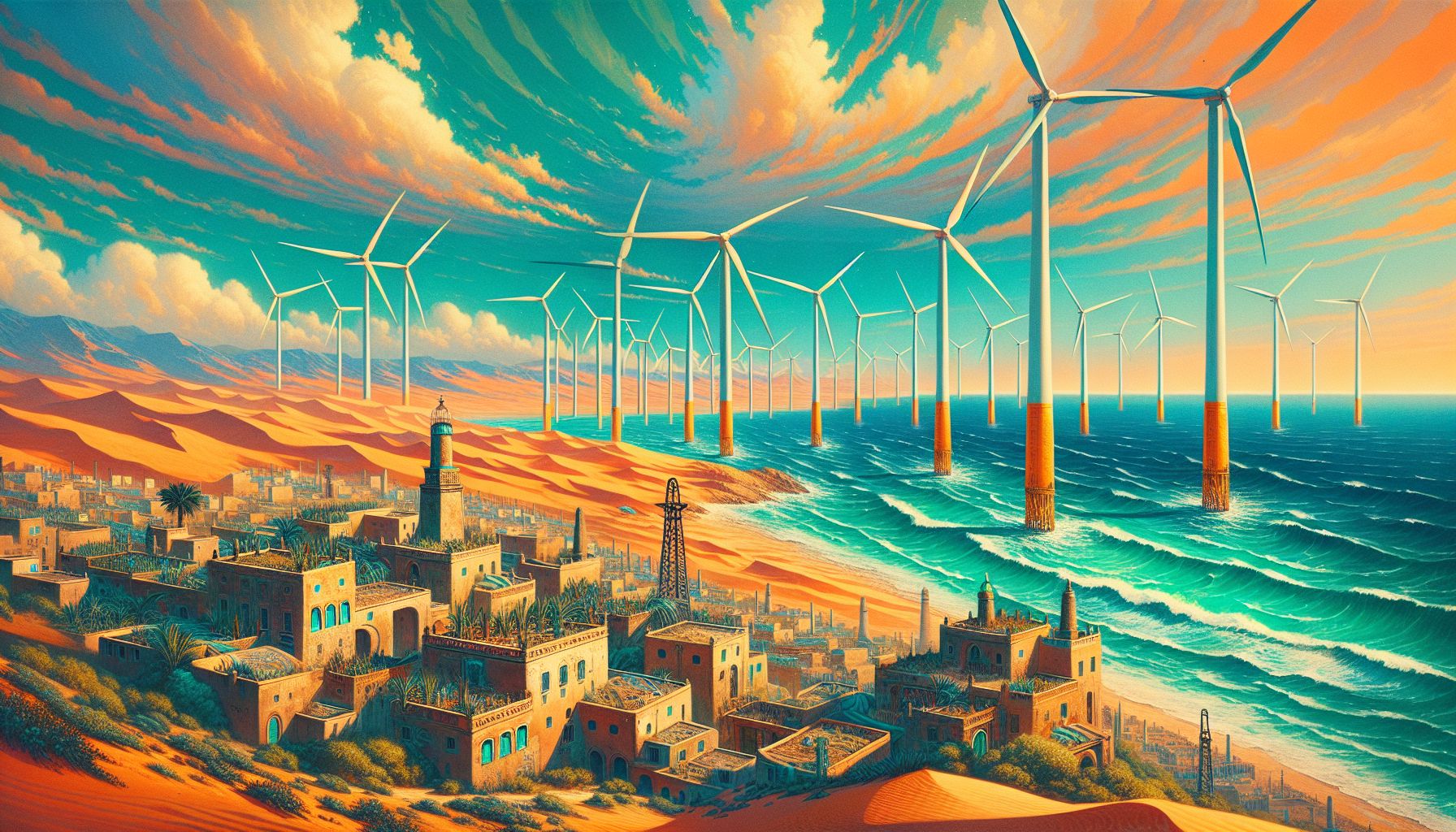Morocco Emerges as Leader in Offshore Wind Energy in Africa

Morocco is set to lead offshore wind energy in Africa, according to the Global Wind Energy Council’s 2024 report, highlighting significant potential and government commitment.
Government Commitment and Potential
The Moroccan government has shown a strong commitment to developing its offshore wind energy sector. The Global Wind Energy Council (GWEC) 2024 Global Offshore Wind Report identifies Morocco as a key player, noting the country’s substantial wind resources and governmental support for renewable energy projects. This commitment is exemplified by Morocco’s ambitious goal to increase the share of renewables in its energy mix to 52% by 2030.
Strategic Investments
Morocco’s strategy includes mobilizing significant global investment to support its wind energy programs. The country plans to attract USD 1.59 billion (MAD 14.5 billion) in investments to finance a 1,000-MW integrated wind energy program. This program encompasses several large-scale projects, such as the 180 MW Midelt, 300 MW Boujdour, 200 MW Jbel Hdid, 100 MW Tiskrad, and 70 MW Tanger 2 wind parks, which are set to be commissioned by 2024.
Competitive Edge in Offshore Wind
One of the key advantages of offshore wind energy in Morocco is its higher production rates compared to onshore wind energy. Offshore wind farms can harness stronger and more consistent winds, leading to higher capacity factors. Energy expert Said Guemra asserts that offshore wind energy in Morocco could achieve occupancy rates between 60% and 70%, which is significantly higher than the average for onshore wind farms in Europe.
Hydrogen Production Synergy
Morocco’s exploration of offshore wind energy is also tied to its plans for green hydrogen production. The coastal city of Dakhla is earmarked for several hydrogen production projects that will rely on renewable energy sources, including offshore wind. This synergy is expected to enhance the economic viability of both hydrogen production and offshore wind energy projects in the region.
Challenges and Future Prospects
Despite the promising outlook, challenges remain. The initial costs and technological demands of offshore wind projects can be significant. Moreover, there is ongoing competition between offshore and onshore wind resources, with Morocco already having excellent onshore wind capacity. Nonetheless, initial measurements and feasibility studies are crucial steps towards realizing the full potential of offshore wind energy in Morocco. The country’s success in this domain could set a precedent for other African nations.

